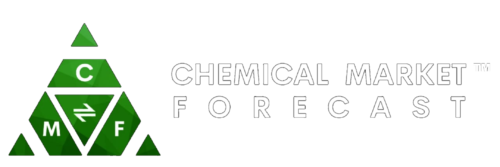The use of polymers is expected to decrease capital expenditure in the design segment of industries. The use of Membrane technology is expected to redefine the liquid-solid separation systems in existence.
Polymers Market as an expanding industrial segment
The company Solvay pushes bounds in terms of technology and innovation to integrate polymer material into water management. The conversion of saline water to kitchen taps is a traditional process that has been employed for ages. The company Solvay states that polymer technology can be employed in each stage of water treatment. Properties like variable porosity and design flexibility promote the application of this technology in water management.
The characteristic porosity associated with these materials can be employed in the design of membrane filters. These filters could have enhanced physical as well as chemical properties on combination with other substances. The corrosion resistance associated with polymers promotes its use in plumbing systems. Moreover, the flexible design and malleability linked to these materials can be employed in the design of water meters. Therefore, on performing adequate research Polymers open a wide array with respect to the value chain for the petrochemicals sector. Each of the applications for this material offers a substantial gain in terms of sustainability.
Chemical Market Forecast covers the industrial segmentation with respect to growth in technologies. The supplier margins and the expanding consumer demand has been studied to decipher the forecast analysis. The research firm focuses on providing a holistic perspective on the supply chain as well as the value chain for the Polymers and Specialty Polymers Market. The Global Scenario of the polymer industry has been discussed through Chemical Market Forecast.
Membrane Technology and Water Treatment:
Polymeric membranes have been employed for water treatment since the early 1970s. As technology advances, the market opens lucrative growth segments that enhance the expansion associated with this pipeline industry. For instance, with improving expertise, the process of desalination is now highly efficient in terms of energy input. Initially, the seawater was heated in order to separate the constituents. Membrane-based processes are continuously replacing traditional distillation procedures.
On making a trade-off analysis it is seen that the process makes use of an energy integrated system. Moreover, the capital procurement costs are vastly reduced as compared to construction or design of a distillation tower, The cost optimization in terms of both CAPEX, OPEX as well as labor costs assign membrane technology as a convincing and promising market segment. Increased heat integration across networks and sustainable use of resources is one of the key factors that promote the growth associated with this market.
Polymeric membranes are used in three key segments for water management including desalination, de-pollution of industrial water, and municipal networks. In the case of desalination, the membrane technology filters out the salinity of the water through the process of reverse osmosis. Other membranes fabricated from Specialty Polymers can adhere to both high pressures as well as low-pressure applications. The material doping and integration enhances the properties associated with conventional polymer technology.
Similarly in terms of industrial wastewater filtration, membrane technology serves as an attractive choice that caters to both costs as well as efficiency-based standards. The technology allows large volumes of water to be treated via this cost-effective solution. Additionally, the capital procurement costs are marginally reduced in this case as well. This mature system allows water to be reused for processes like irrigation, thus benefiting the agricultural sector as well.
Polymers as the new metals in the Plumbing sector:
Polymers have been a part of the plumbing appliances market for over three decades. The Polymers serve as a leading solution for the construction of fittings, valves, and water meter. This material can also be used in cartridge development industries for faucets, i.e. they could facilitate flow adjustments. The market growth associated with these segment-based units promotes the use of polymers for the design of plumbing equipment.
The strength and flexibility associated with these materials promote them as good substitutes for metal. Moreover, in terms of material of construction, polymers are a cost-effective solution as compared to d-block elements (metals like iron). Additionally, these substances ensure a lesser number of parts with respect to the construction of structures due to its malleable properties. Polymers are corrosion-resistant, they serve as cost-effective solutions in terms of maintenance expenditure associated with equipment.
Chlorine is added to drinking water to sterilize it. The substances react with metal pipes thus degrading its quality and causing leaks. Hence polymers as well as plastic serve as valuable alternatives to metals in terms of pipeline construction as well. The market penetration of this material has been rampant since its inception. The employment of polymers and plastics in place of metals results in fewer leaks associated with the industrial pipeline. Water management companies are subject to hefty penalties due to water wastage. Therefore, public authorities promote the use of materials that prevent losses. This is another factor that acts as a key driver associated with this market. Polymers and plastics can be used to design thinner parts as compared to metals. The growth in technologies including smart water meters are redefining the Plumbing industry. This technology can measure water pressure and pollutants present within the supply stream. The integration of these qualities drives certain technologies like pressure gauges used in water management processes to redundancy.
